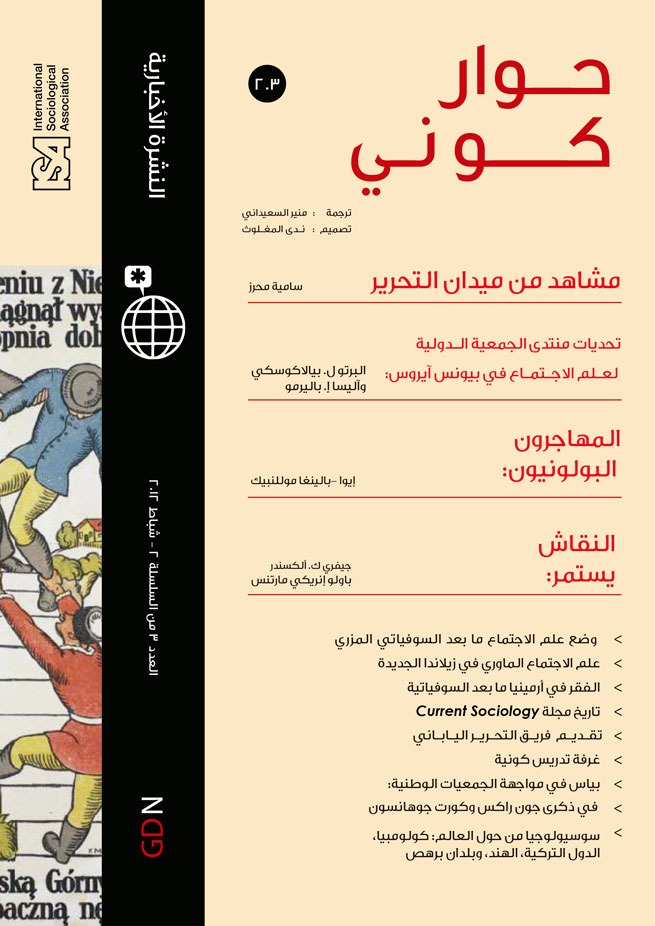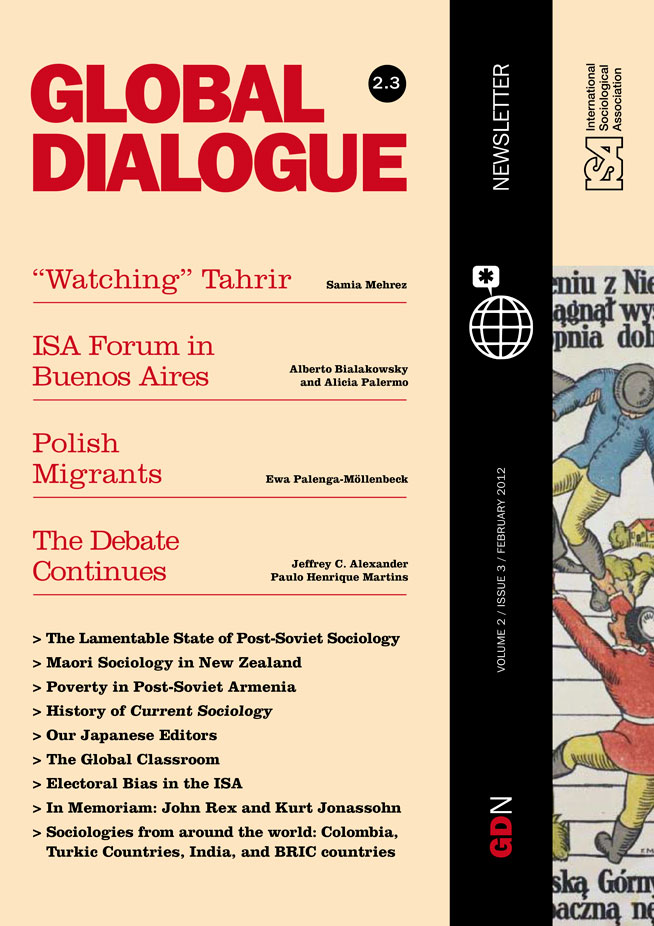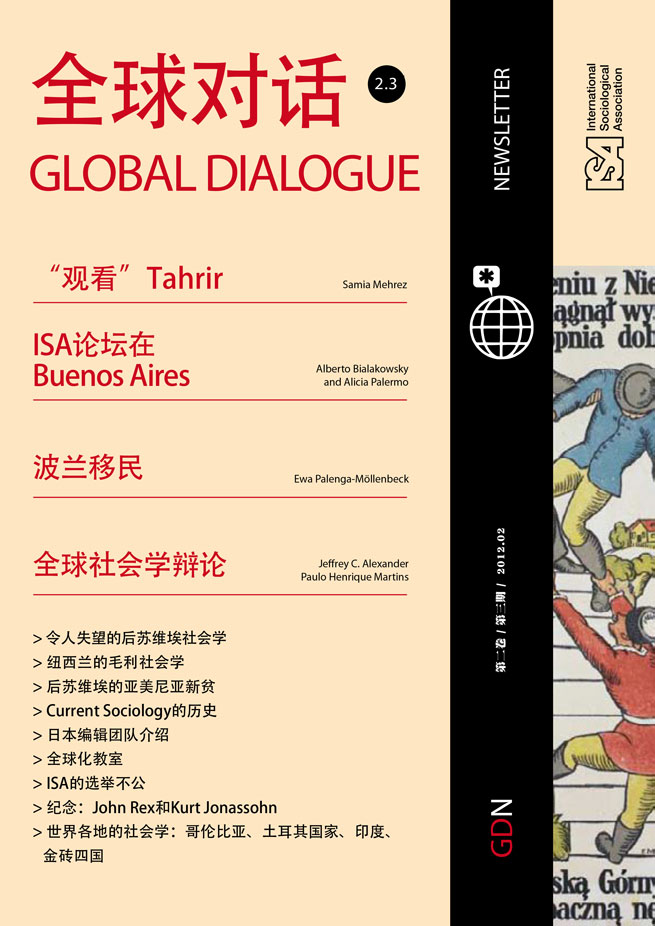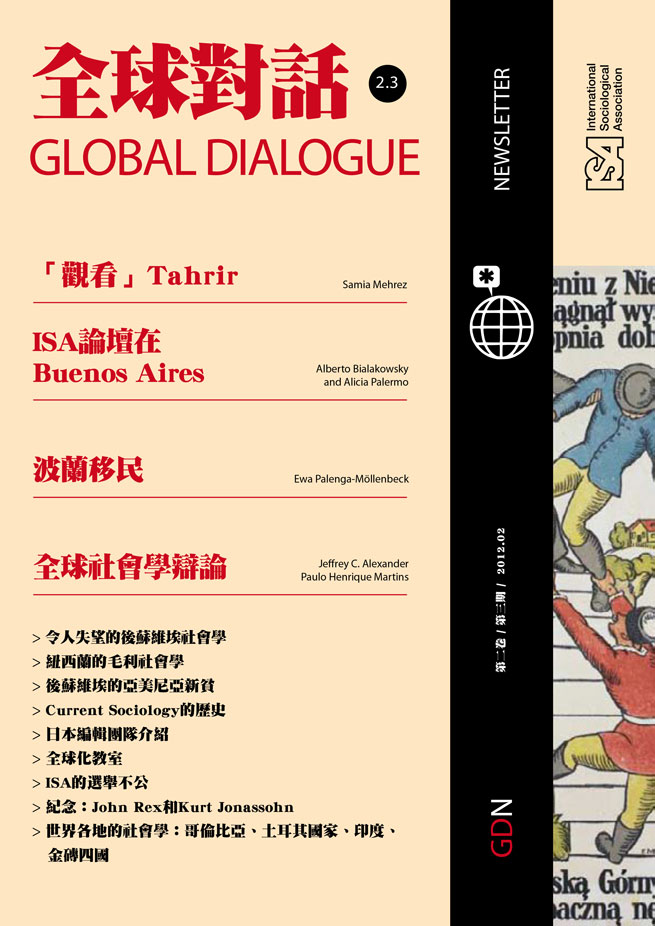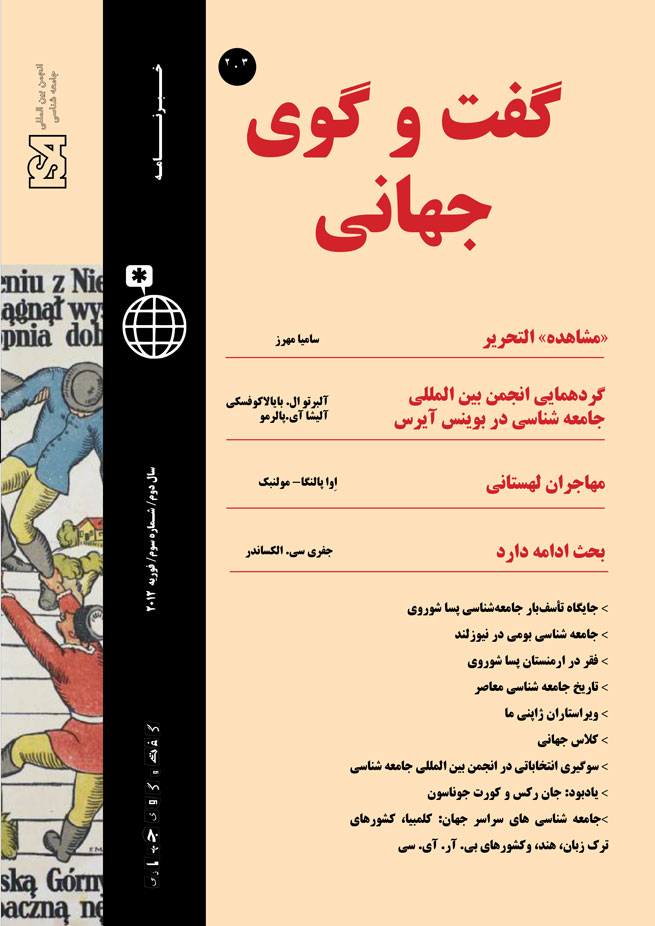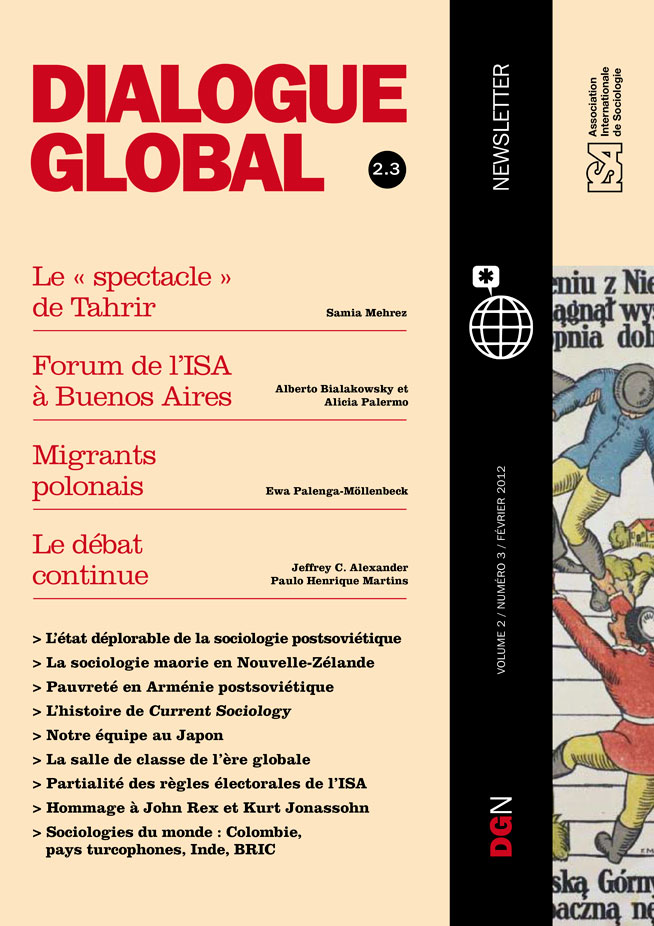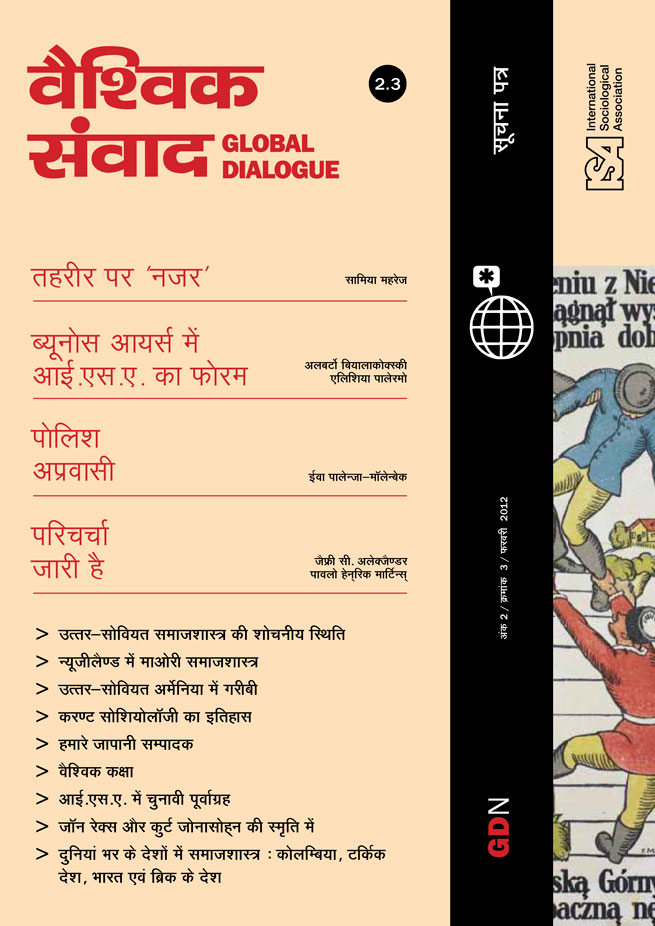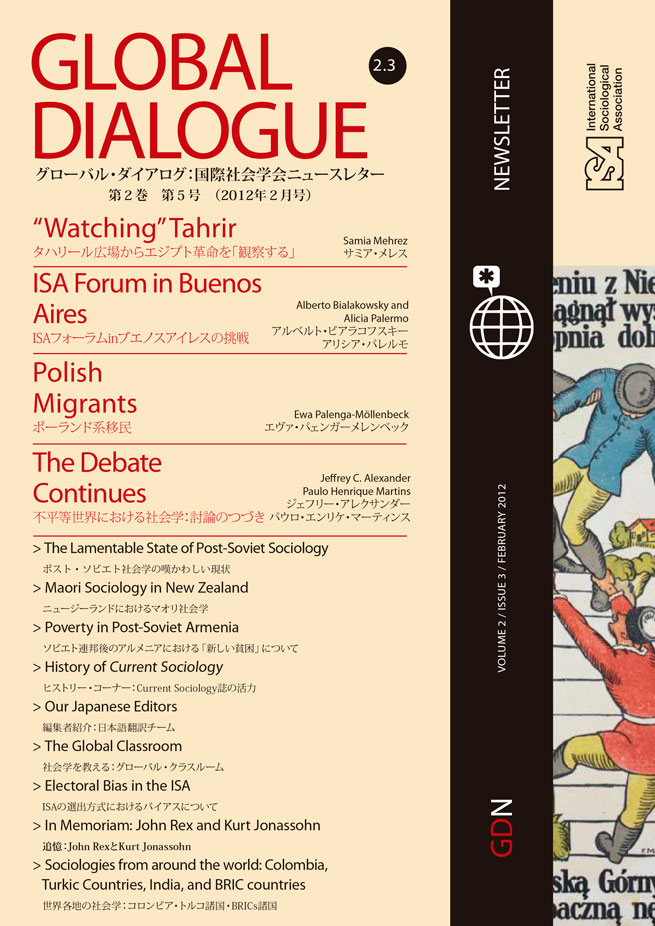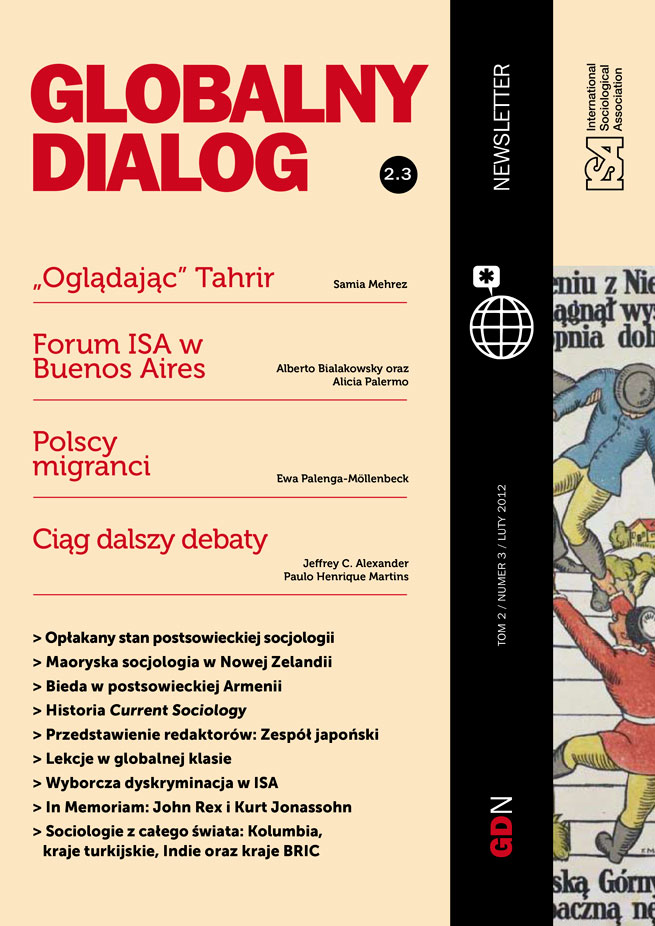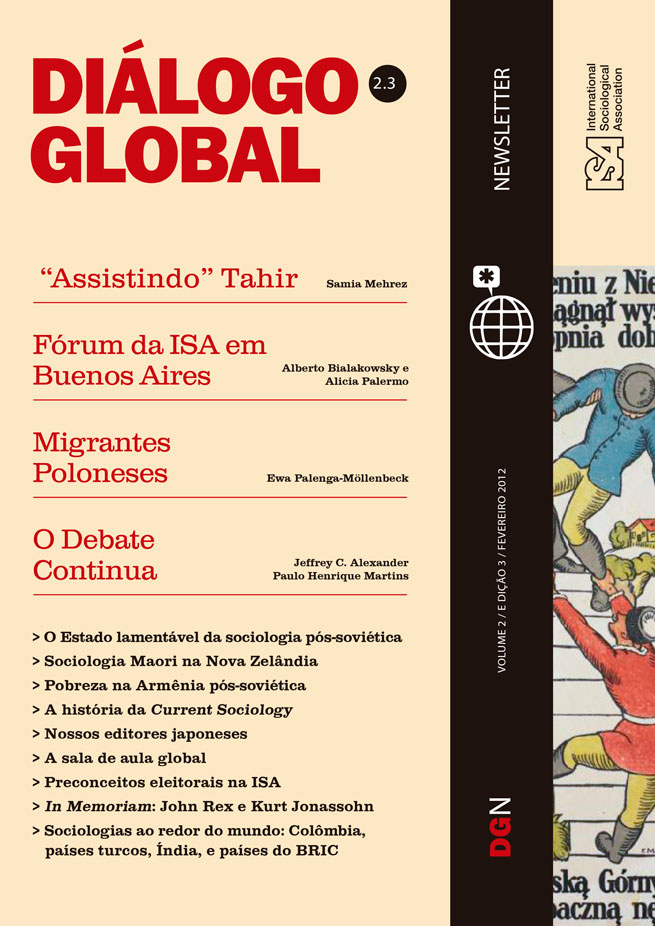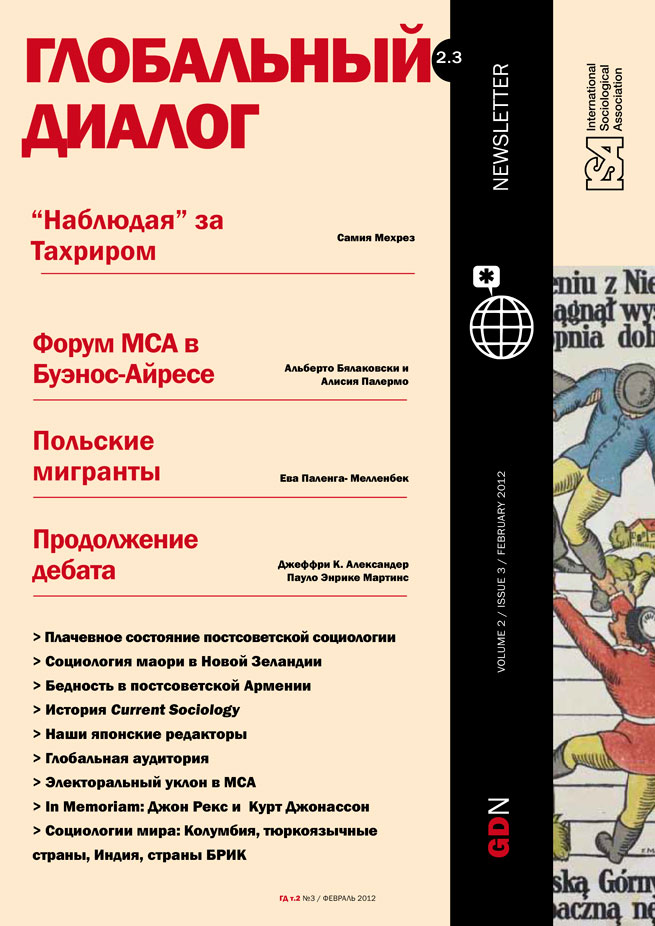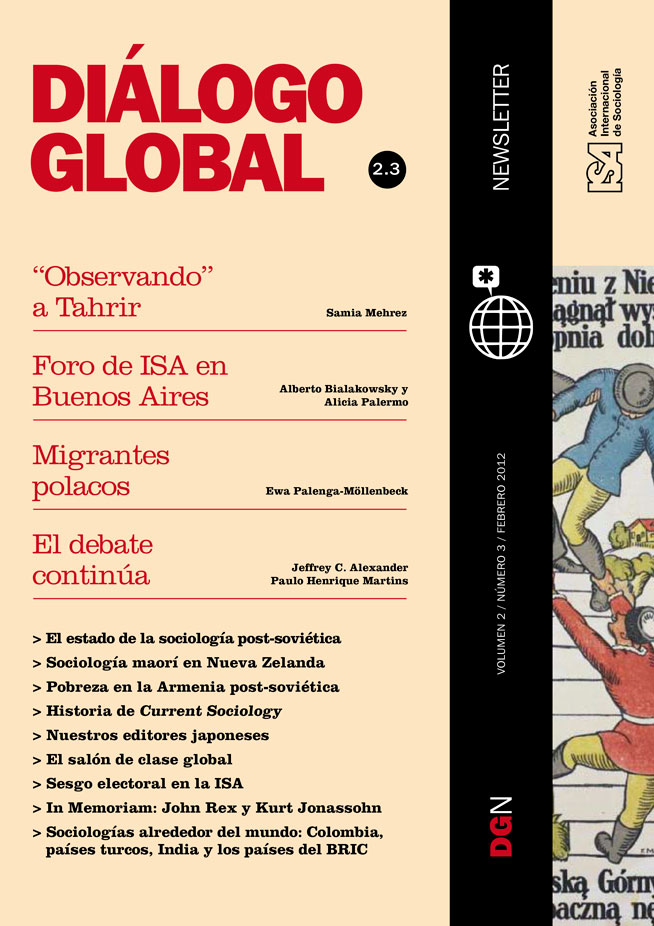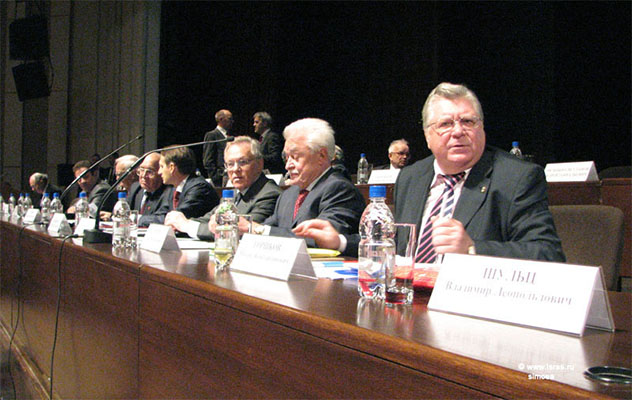Read more about From the Regions
A Note on the “New Poverty” in Post-Soviet Armenia
by Gevorg Poghosyan
Māori Sociology in New Zealand
by Tracey McIntosh
March 01, 2012
Over the last few years the intellectual space of Russian sociology has become a battle field. It would seem that two out of three sociological writings today are about sociology itself: sociology of sociology becomes, if not part of mainstream research, then at least a favorite theme for public debate. No longer are the Soviet Union’s collapse and “the need to study social transformation” the only legitimate bases for studies in social science. Now that the post-Soviet childhood of the social sciences is over, an almost obsessive, hyper-reflexivity has replaced decades of unreflective thinking.
Neo-Soviet Language
It makes sense to look back on the landscape of sociological language prior to the recent wars. The Third All-Russia Sociological Congress of 2008 is a good place to begin. The Congress crystallized neo-Soviet language patterns of stylistic vacuity: “For the needs of society’s steady development it is necessary to provide high-quality applied sociological research,” or “[…] sociology today is faced with the task of studying a society’s demand for social, physiological, economic, energy, synergy, and other forms of security.” Consider, for example, the results of a survey administered to 2500 Congress participants. It turns out that 73% of the respondents (about a quarter of the participants) were proficient in one foreign language with a dictionary; 40% were employed in the government and a similar figure in business at some point after the year 2000; 66% read the main journal Socis; the most popular textbook was the one edited by V. Dobren’kov and A. Kravchenko; among foreign authors the most frequently mentioned were Zygmunt Bauman and Piotr Sztompka.
Asked for definitions of sociology, the most popular was “sociology is the science of society,” and asked what society was, most did not respond, and, among those who did, the winning definition was “society is a socium.” Such tautologies are the semantics of conservatives for whom sociology is a social technology with value to the state. If theory is needed, it should be Russian theory, which addresses national concerns. At the Congress accusations were leveled against “some liberal sociologists” who “are paid from the West” to instigate “orange revolutions.” The Congress demonstrated that a consolidated, neo-Soviet, sociological language was in the process of formation with its distinct codes, mechanisms of reaching understanding, shared axiomatics and the logic of tautology.
Anti-Soviet Language
Now let’s turn to alternative languages of sociology. Here, one cannot ignore the symposium Russian Pathways, for eighteen years one of the most conspicuous and regular events in social science. From its published materials (1993-2008) one can see how its “anti-Soviet” language codes and metaphors have become ever more hermetic. Thus, it is interesting to trace the meaning of “transformation” as it grew from a concept into a metaphor which can describe virtually anything. As with neo-Soviet language, it has its own axiomatic claims, accepted-by-all and as-not-requiring-proof. First, it takes a critical stance toward the rigid language of Soviet sociology and its heir – the conservative neo-Soviet doublespeak. Second, it adopts explicitly stated ideals: sociology should serve progress – a civic society, democratization and liberalization. Third, it emphasizes the importance of empirical work, i.e. sociography with its skilled description of the “true problems of Russian society.” The continual harping on “true problems of society” betrays a naïve realism about society as an objective entity with its unique problems and diseases, imposing an agenda on researchers. Similar to Galileo who assumed the Book of Nature is written in the language of mathematics, the naïve realists assumed that the Book of Society is written in the language of sociology, moreover, in the language of their sociology. The semantics of Russian Pathways substantially changed over the fifteen years of its publications. Starting with stormy debates about Russia’s future in the mid-1990s, Russian Pathways had lost its radical drive by the end of the 1990s, taking on a “liberal critique” of the regime. Yet, despite the evolution of its rhetoric, the underlying description has remained unchanged, namely “This is not what it should be,” which, in the 1990s, sounded like, “This is not what it should be yet,” and in the 2000s sounded like, “This is totally different from what it should be.”
A Post-Soviet Convergence
Just as tautology is the main formula for “neo-Soviet” languages, so paradox is the main formula for “anti-Soviet” languages, drawing attention to the gap between “what is” and “what should be.” My main thesis is that there is no difference between the two languages – both are deeply Soviet.
Certainly these two semantics, tautological and paradoxical, do not cover the entire post-Soviet spectrum. There have been other languages but they emerged outside the theoretical “mainstream” or far beyond the Moscow Beltline (for example, in St. Petersburg). While in the wider world advocates of socio-analysis, frame analysis, phenomenology and ethnomethodology struggle for scientific advantage, in Russian sociology conservatives and liberals face off against each other with the result that sociological talk has come to look like politically determined journalism.
Victor Vakhshtayn, Moscow School of Social and Economic Sciences, Russia
This issue is not available yet in this language.
Request to be notified when the issue is available in your language.
If you prefer, you can access previous issues available in your language:
